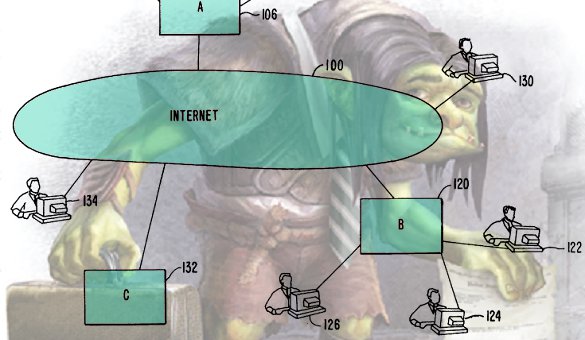The Patent Troll of Tyler
Tyler, Texas, a city with less than half the population of Scottsdale, was recently the unlikely location of a legal battle that had threatened the very foundation of the Internet as we know it. It was here that an obscure biologist from Chicago, Dr. Michael Doyle of Eolas Technologies, filed suit challenging ownership of what is termed the “interactive web,” or the ability to interact with a web page allowing the user to play video, rotate a picture, and other interactive features we use online every day.
The legal battle stems from what many consider to be obsolete and overly lax software patent laws in the United States that allow a patent on computer software. While software code is “written” and can be copyrighted to protect unlawful duplication, a patent can protect an idea or broadly defined functionality of software, even if the technology itself is obsolete. According to the Eolas website, in 1993 Dr. Doyle, working at the University of California – San Francisco, “led a research team that developed fundamental web technologies that resulted in the patent, which enabled Web browsers for the first time to act as platforms for fully-interactive embedded applications.” The problem is that he never actually produced any commercially successful technology and instead created Eolas Technologies much later for the express purpose of engaging in litigation on this and other obscure patents they had collected. The popular term for a business established to engage in predatory litigation in this manner is patent troll. Typically, patent trolls engage smaller businesses that can’t afford the resources to oppose litigation in court and are forced to settle for a more reasonable amount.
Eolas, which moved its address from Chicago to Texas by maintaining a very small office in Tyler, presumably reasoned they had a better chance of successful litigation from jurors in Tyler rather than Silicon Valley or Chicago. The Eastern District of Texas had become a hotspot for aggressive litigation by patent trolls. In any case, the eight person jury took only a few hours to deliberate and ruled in favor of the various big name player such as Google, Yahoo, JCPenny, and others who went to Tyler to stand up and fight rather than roll over and settle for what was a crucial and pivotal threat to internet commerce. The decision is based more on details over a timeline rather than the patent laws themselves so while the case is important, it may not set the precedent needed to stop other patent trolls.
 Eolas Technologies, which had previously been successful with a suit against Microsoft, was outgunned this time and it’s likely they’ll be down for at least the short term. Although Eolas will likely appeal this decision it may be years before we hear from them again. In the meantime, patent trolls will continue to exploit outdated laws and attempt to bully smaller, less powerful businesses that often are forced to settle under threats rather than deal with the costly litigation they simply can’t afford.
Eolas Technologies, which had previously been successful with a suit against Microsoft, was outgunned this time and it’s likely they’ll be down for at least the short term. Although Eolas will likely appeal this decision it may be years before we hear from them again. In the meantime, patent trolls will continue to exploit outdated laws and attempt to bully smaller, less powerful businesses that often are forced to settle under threats rather than deal with the costly litigation they simply can’t afford.



















Muchos Gracias for your blog post.Thanks Again. Much obliged.